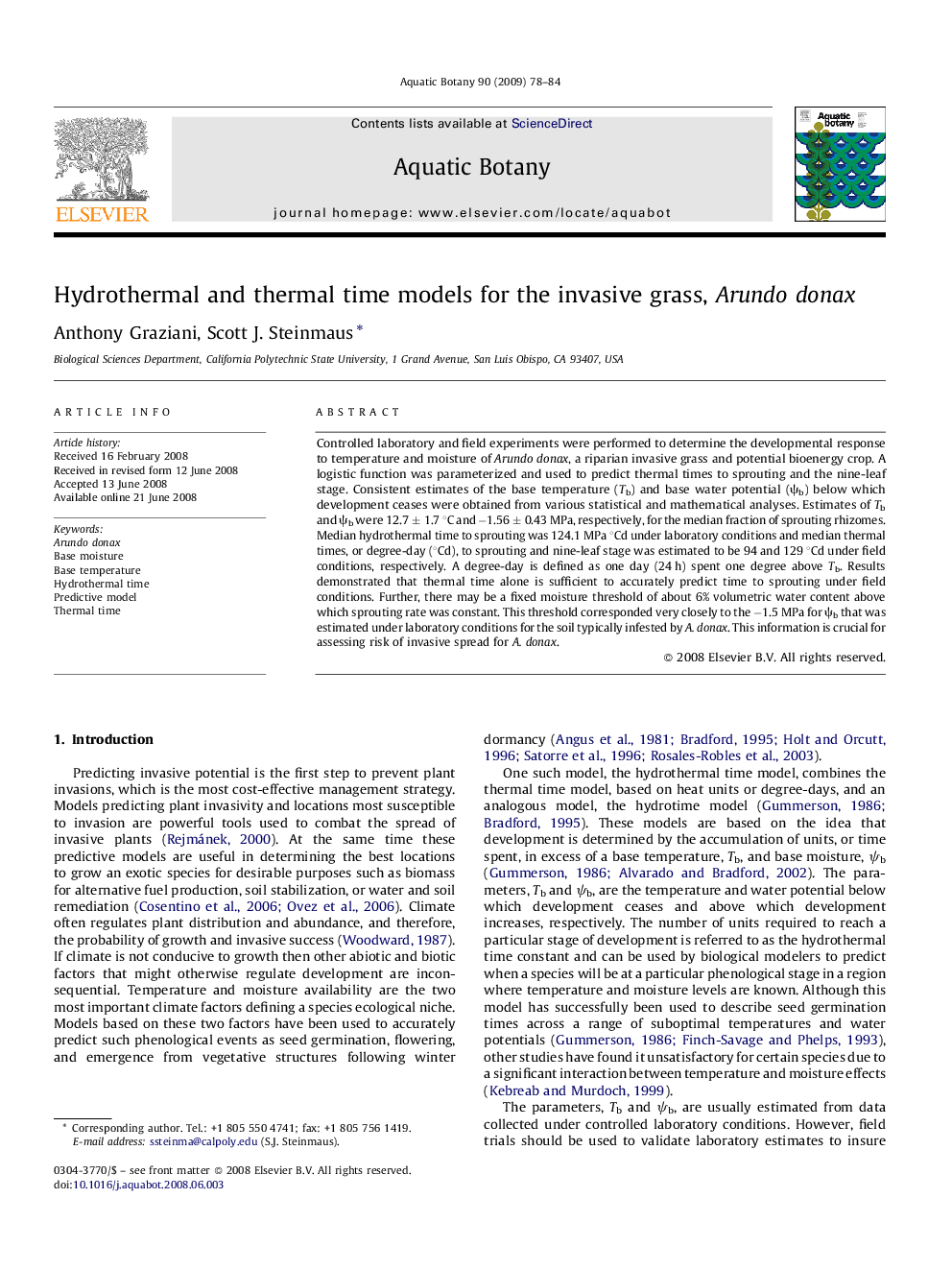| Article ID | Journal | Published Year | Pages | File Type |
|---|---|---|---|---|
| 4528407 | Aquatic Botany | 2009 | 7 Pages |
Abstract
Controlled laboratory and field experiments were performed to determine the developmental response to temperature and moisture of Arundo donax, a riparian invasive grass and potential bioenergy crop. A logistic function was parameterized and used to predict thermal times to sprouting and the nine-leaf stage. Consistent estimates of the base temperature (Tb) and base water potential (Ïb) below which development ceases were obtained from various statistical and mathematical analyses. Estimates of Tb and Ïb were 12.7 ± 1.7 °C and â1.56 ± 0.43 MPa, respectively, for the median fraction of sprouting rhizomes. Median hydrothermal time to sprouting was 124.1 MPa °Cd under laboratory conditions and median thermal times, or degree-day (°Cd), to sprouting and nine-leaf stage was estimated to be 94 and 129 °Cd under field conditions, respectively. A degree-day is defined as one day (24 h) spent one degree above Tb. Results demonstrated that thermal time alone is sufficient to accurately predict time to sprouting under field conditions. Further, there may be a fixed moisture threshold of about 6% volumetric water content above which sprouting rate was constant. This threshold corresponded very closely to the â1.5 MPa for Ïb that was estimated under laboratory conditions for the soil typically infested by A. donax. This information is crucial for assessing risk of invasive spread for A. donax.
Related Topics
Life Sciences
Agricultural and Biological Sciences
Aquatic Science
Authors
Anthony Graziani, Scott J. Steinmaus,
